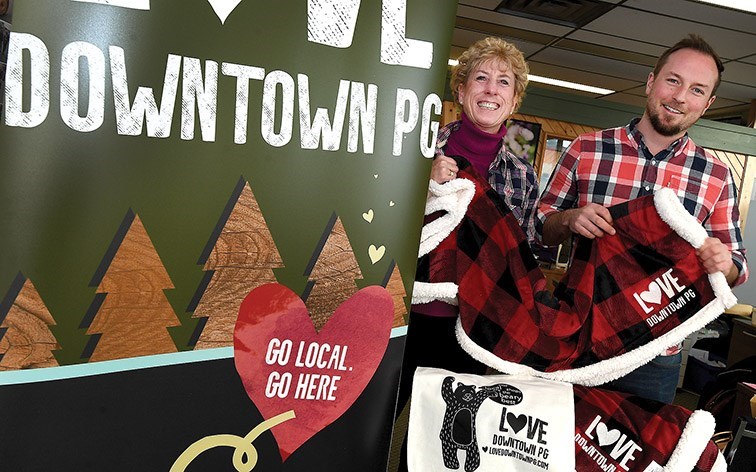Downtown Prince George president Eoin Foley expressed support Tuesday for allowing people to carry small amounts of illicit drugs as a "small step in the right direction" but added it will go only so far when it comes to solving the problems surrounding addiction.
Starting today, people 18 and over in B.C. can carry up to 2.5 grams of opioids such as heroin and fentanyl, as well as crack and powdered cocaine, methamphetamine and MDMA. Users will not be arrested or have their drugs seized by police in what is a three-year pilot project.
Foley, who owns a trio of restaurants in the city's downtown, hopes one of the outcomes will be a "noticeable drop" in the amount of property crime that downtown businesses have endured.
"If somebody that has an interaction with the police has their small amount of drugs taken away from them, they might be inclined to go steal or break in to your store or car to get themselves square again to get their next fix," Foley said. "So if we can eliminate just a little bit of that, that's a bit of help for our businesses and the general public at large."
He said the social issues are the "number one topic" whenever the DPG board of directors meets and had sharp words for the lack of progress governments, particularly the provincial government, have made so far to tackle the issue of addiction.
"I think it's probably one of the easiest to implement - directing police to not take certain actions," Foley said of decriminalization. "My message to provincial leaders is that this is probably one of the easiest, possibly the most laziest way for them to address these issues and they really need to step up a lot more than this."
But Foley also said the public should not shy away from going downtown when the retailers and restaurants are open and noted that most of the significant crime occurs overnight when the businesses have closed.
"Of course there are some people on the streets that spend most of their time there, that some citizens don't want to have to encounter but the vast majority of them, they're not going to be accosting you or stealing from you," Foley said.
"A lot of the time, they're just going about their daily business, they're just looking for a place to be, they're human beings. Often, they're be friendly and say hello and smile at me, and the best response is to treat people with kindness and you'll feel better in your daily life."
Like Foley, John Zukowski, a downtown business owner who ran for city council on a platform that called for getting tougher on crime downtown, said a decline in criminal activity would be a measure of success.
Zukowksi also spoke in favour of safe supply both as a way to prevent deaths from tainted drugs and keep criminals from profiting.
Asked whether installing metal barriers that can be rolled down when a business is closed to prevent would-be thieves from smashing windows to break, Zukowski said he knows of two downtown businesses that have put them in place but added they are expensive and that landlords don't want to pay for them.
"A lot of the buildings that are owned downtown are owned by non-Prince George residents. Folks in Kelowna and Penticton, they will coin out but they don't want to put any money into upgrading," Zukowski said and suggested the city should do more to encourage building owners to upgrade.
Foley expressed mixed feeling about resorting to the barriers, saying they need to be the type that can be "hidden away" when businesses are open during the daytime and worried they risk making the downtown feel uninviting.




